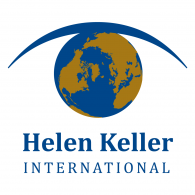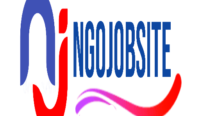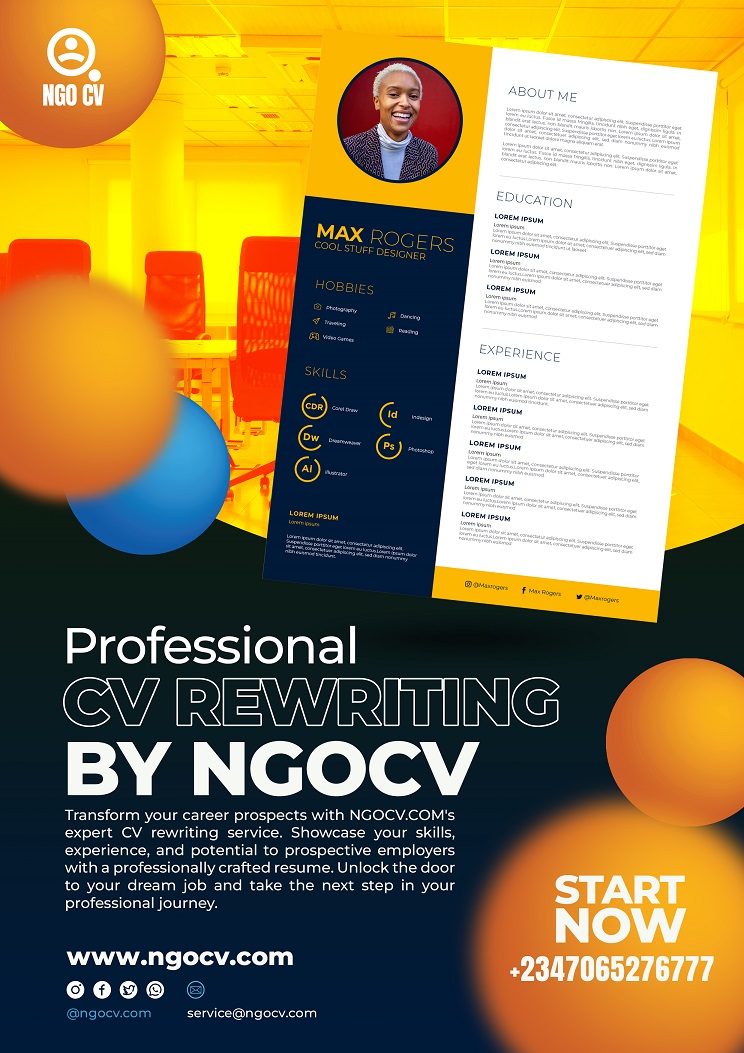
Helen Keller International (HKI), established in 1915, is an international non-governmental organization (NGO) dedicated to saving the sight and lives of the most vulnerable and disadvantaged. Headquartered in New York City, HKI currently conducts programs in 21 countries in Africa and Asia, as well as in the United States.
HKI implements integrated package of cost-effective interventions that are proven to improve maternal and child nutrition. HKI supports policies and programs on food fortification, vitamin A supplementation, infant and young child feeding, nutrition-sensitive agriculture, community-based management of acute malnutrition and prevention and treatment of neglected tropical diseases. At the core of HKI’s programs is advocacy and social behavior change communication to various stakeholders. HKI also undertakes cutting-edge research to influence policy decisions and inform program quality.
We are recruiting to fill the position below:
Job Title: Consultant to Conduct a Comprehensive Desk Review of Nutrition Status
Locations: Abuja (FCT) , Bauchi, Ebonyi, Kebbi and Sokoto
Employment Type: Contract
Background of Advancing Nutrition in Nigeria Project
- Advancing Nutrition in Nigeria activity aims to provide technical support, implement innovative nutrition interventions, and generate evidence to enhance nutrition programming toward achieving the overall goal of improving nutrition for a healthy, productive, and resilient Nigeria. This activity will support the Mission’s effort to strengthen the enabling environment for innovation, commitment, capacity strengthening, coordination, collaboration, and support for multi-sectoral nutrition policies and programs among Nigeria’s government, donors, civil society, and private sector stakeholders.
- Advancing Nutrition in Nigeria activity will contribute to the USAID/Nigeria Country Development Cooperation Strategy (CDCS) Development Objectives, specifically, Development Objective 1 (DO1): Broadened and Inclusive Economic Growth; DO2: A Healthier, Better Educated Population; and the Special Objective (SO): Greater Stability and Early Recovery Advanced in Selected States.
- The activity will develop and support the implementation of innovative multisectoral nutritional approaches and build the capacity of actors in the health facilities, community, civil society, and the government. The activity will advocate to mobilize resources and institutionalize nutrition interventions at the national and sub-national levels to address malnutrition. The focus of the project is to improve nutritional outcomes in Bauchi, Ebonyi, Kebbi, Sokoto, and the Federal Capital Territory through innovative, multisectoral approaches. The specific package of interventions for selected states will be identified through joint annual work planning processes and will include exploring opportunities to leverage existing USAID/Nigeria activities, and partnerships with the private sector to provide a more comprehensive package as needed. The project will operate for 5 years starting in 2024. To inform activities and assess baseline conditions, a comprehensive desk review of nutrition and socio-demographic information will be undertaken.
Objectives of the Project
The project aims to meet the following objectives:
- Objective 1: Strengthen multi-sectoral linkages and coordination through technical assistance to the Government of Nigeria, the Mission, and implementing partners.
- Objective 2: Support a Cohesive and Sustainable Plan to Address Wasting.
- Objective 3: Generate evidence and test innovative approaches to improve nutrition programming and inform future designs.
Consultancy Objective
- Helen Keller is seeking a consultant to conduct a comprehensive baseline desk review for the Advancing Nutrition in Nigeria (ANN) project.
The primary objectives of the baseline and desk review are as follows:
- Consolidate the most recent indicators of demographic, socioeconomic status, nutritional status, and health system functioning nutritional status and health in the project’s focus states.
- Review and summarize existing data, reports, and documentation relevant to nutrition interventions in the target areas.
- Provide baseline information for key project indicators outlined in the Monitoring, Evaluation, and Learning Plan.
Focus Areas for Baseline Assessment:
- Below are the key areas for which data should be collected. The final list of indicators will be finalized jointly by Helen Keller Intl and the consultant.
Demographic Data:
- Population size, age distribution, and gender distribution in each of the focus states (Bauchi, Ebonyi, Kebbi, Sokoto, and the Federal Capital Territory).
Nutritional Status:
- Prevalence of stunting, wasting, and underweight among children under 5 years old in each focus state.
- Nutritional status of pregnant women, including rates of anaemia and undernutrition.
- Baseline data on the nutritional status of adolescent boys and girls (10-19 years) in the project-focused state.
Dietary Practices:
- Dietary intake of children 6 – 59 mo of age, women of reproductive age, and adolescents (diet diversity scores, specific micronutrient intake, diet quality)
- Prevalence rates of exclusive breastfeeding and data on complementary feeding practices
Health Facility Assessment:
- Assessment of the existing health facilities in each focus state, including the availability of trained health workers, resources, and equipment for nutrition services.
- Data on the integration of nutrition into existing training platforms for health workers.
- Assessment of health facilities that submit nutrition data in the DHIS2.
Baseline data on the capacity of Local Government Areas (LGAs) to use data for decision-making in nutrition programming:
- Assessment of data management systems at the local level.
- Local Government investment in nutrition
- Private Funding and Investment in nutrition
- Data on private funding leveraged for specific nutrition interventions.
Government Commitment:
- Baseline data on the state government’s commitment to mobilize resources for nutrition.
- Data on the state government’s current investment in nutrition-related activities.
Coverage of Vitamin A Supplementation (VAS) and Multiple Micronutrient Supplement (MMS):
- Baseline coverage data for VAS among children aged 6-59 months and multiple micronutrient supplements (MMS) in supported states
Duties and Responsibilities
- In coordination with Advancing Nutrition in Nigeria staff, the consultant is expected to perform the following tasks:
Review of Existing Documentation:
- Conduct a thorough desk review of project documents, reports, and relevant literature related to nutrition interventions in Bauchi, Ebonyi, Kebbi, Sokoto, and the Federal Capital Territory.
- Summarize key findings, challenges, and lessons learned from previous and ongoing nutrition programs.
Data Collection and Analysis:
- Work closely with project stakeholders to collate existing data on demographic, nutritional, and health-related indicators in the target states that will serve as a baseline for the project
- Analyze existing datasets, surveys, and reports to identify trends and gaps in nutrition outcomes.
- Prepare data tables summarizing all indicators by state with relevant disaggregation (e.g. gender, urban/rural status as determined by team).
Stakeholder Engagement:
- Collaborate with key government agencies, and local communities to gather insights into the local context and nutrition-related practices.
- Conduct interviews or focus group discussions with relevant stakeholders to understand perceptions, challenges, and opportunities related to nutrition
Capacity Assessment:
- Develop and alidate criteria to assess health system capacity with Helen Keller and assess the capacity of health facilities in implementing and supporting nutrition interventions.
- Identify existing training platforms and assess the integration of nutrition into healthcare training programs.
Baseline Indicator Mapping:
- Develop a baseline indicator mapping for key project indicators outlined in the Monitoring, Evaluation, and Learning Plan.
- Ensure alignment with the project’s theory of change and objectives.
Stratify the project locations to show critical needs as per LGAs:
- Map out LGAs that require critical support in areas of essential nutrition commodities.
- Map out LGAs prone to critical levels of food and nutrition security.
Food Availability:
- Quantify the availability of diverse and nutritious food items in the target areas.
- Assess the local production and distribution systems for staple foods.
Food Utilization:
- Examine dietary patterns and food consumption habits.
- Assess the nutritional value of commonly consumed foods.
- Food Processing and Preservation:
- Investigate the state of food processing and preservation methods.
- Assess the availability and utilization of food technologies.
Food Safety and Quality:
- Evaluate food safety practices and standards.
- Assess the quality and safety of commonly consumed food items.
- Local Markets and Supply Chains:
- Examine the functioning of local markets and food supply chains.
- Assess the role of various actors in the food value chain.
Agricultural Practices:
- Examine current agricultural practices, including the use of sustainable and diverse farming methods.
- Assess the adoption of good agricultural practices (GAP) by farmers.
- Examine climate adaptive measures among farming households.
Expected deliverables:
The Consultant is responsible for the timely submission of the following:
- Desk review protocol including an Analytical plan in which key indicators and dummy tables will be agreed upon with Helen Keller.
- Draft report
- Final Baseline Report including demographic, nutritional, and health-related indicators. The report should include an Executive Summary – summarizing the report’s purpose and key findings.
- Stakeholder engagement report highlighting key insights from interviews and discussions.
- Capacity assessment report outlining strengths and weaknesses in nutrition program implementation.
- Recommendations – including the elements that would help in improving the uptake of VAS and MMS.
- References / Resource List / Bibliography
- Conclusions – assessors’ interpretations and judgments
Required Qualifications, Skills and Competencies
The ideal consultant should possess the following qualifications:
- Advanced Degree in Nutrition, Public Health, or a related field.
- 4 – 10 years work experience.
- Proven experience in conducting baseline assessments and desk reviews for nutrition projects in Nigeria.
- Strong analytical skills and expertise in quantitative and qualitative data analysis.
- Familiarity with USAID-funded projects and nutrition-related interventions.
Reporting and Institutional Arrangements:
- The consulting personnel or firm will report to the Advancing Nutrition in Nigeria Monitoring, Evaluation, and Research Advisor, with whom s/he will plan, review, and adjust the program as needed. Deliverables will not be considered final until they have received approval from this USAID point of contact.
Duration of Assignment, Duty Station, and Travel:
- The Consultant will be engaged for approximately the equivalent of 20 working days (4 weeks) from the commencement of the Advancing Nutrition in Nigeria project unless revised in a mutually agreed timetable.
- The budget for this consultancy should cover all expenses related to data collection, analysis, stakeholder engagement, and report writing.
Application Closing Date
26th December, 2023.
How to Apply
Interested and qualified candidates should send their CV to: [email protected] using the Job Title as the subject of the mail.




